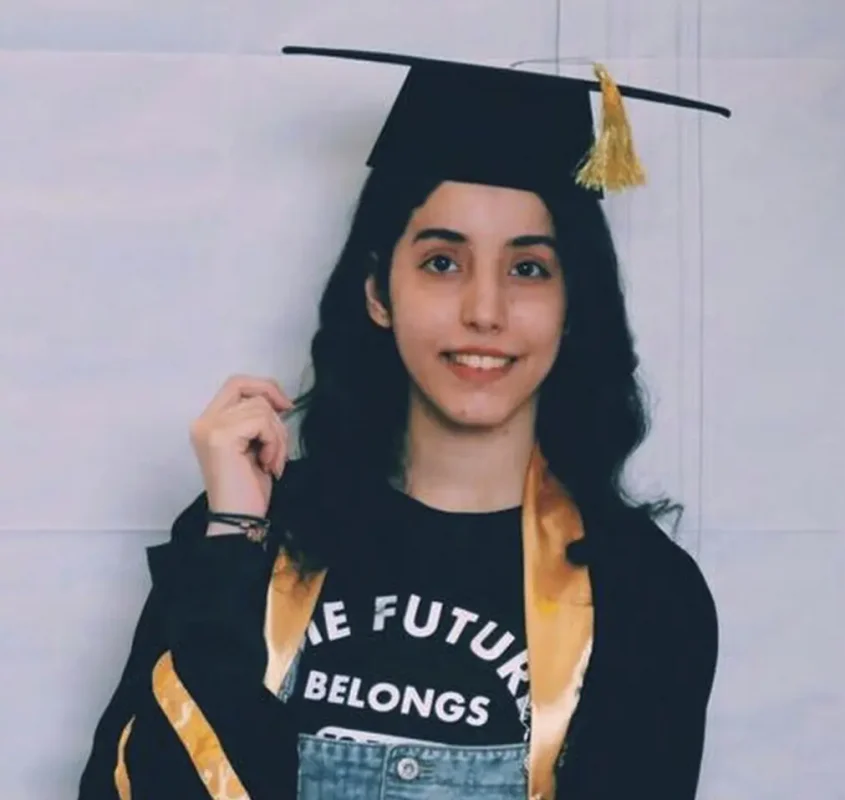Manahel al-Otaibi’s nightmare began on November 16, 2022. A 29-year-old certified fitness instructor was detained and imprisoned by Saudi authorities. Her crime? Having Twitter and Snapchat profiles that supported recent social advances while also demanding greater fundamental rights within the kingdom. More specifically, The authorities leveled accusations against her for promoting female empowerment and challenging the restrictive male guardianship system, citing her use of hashtags like #societyisready. Further, she was also accused of “having several photos and video clips in indecent clothes”, and “going to the shops without wearing an abaya, photographing this, and publishing it on Snapchat”.
In July 2023, Manahel’s trial was set to begin, yet her path through the Saudi justice system proved far from fair. Instead of proceeding as planned, her trial was postponed indefinitely, leaving her in a state of uncertainty. Subsequently, she was confined in a solitary cell without air conditioning, subjected to ongoing mental and physical abuse. Shockingly, rather than ensuring her safety, prison officials exacerbated her vulnerability. Upon her release from solitary confinement around September 27, she was placed among drug addicts, exposing her to an increased risk of violence and danger.
Manahel al-Otaibi’s story is the latest in a series of arrests and imprisonments of Saudis for using social media profiles to promote change in Saudi Arabia. Her sister, Fawzia Al-Otaibi, fearlessly shed light on the intimidation and dangers their family encountered due to their vocal opposition to the system. Residing in the UK, Fawzia expressed gratitude for her possibility to leave Saudi Arabia, acknowledging that staying would have led to her arrest, mirroring her sister’s fate. She bravely disclosed receiving death threats for persisting in using social media to champion the civil and human rights of her two sisters and all women in Saudi Arabia.
Manahel and her sister Fouz’s story is just one instance among several indicating a systematic crackdown on dissenting voices in the kingdom. Over the past year alone, Saudi courts have handed down severe sentences to numerous women engaged in peaceful rights activism on social media. This includes Nourah al-Qahtani (sentenced to 45 years), Sukaynah al-Aithan (40 years), Fatima al-Shawarbi (30 years), Salma al-Shehab (27 years), and most recently, Manal al-Gafiri, an 18-year-old high school student sentenced to 18 years in prison.
While Saudi Arabia endeavors to portray a more progressive image, especially in terms of women’s rights, the actuality presents a contrasting truth. Their proclamations of equality for women and liberal dress seem to apply solely to Western standards.
Despite surface-level changes, like the lift of the travel ban as a symbol of progress and liberation for Saudi women, the ground reality is highly incongruent. Hence, beyond these symbolic gestures, Saudi women grapple with the enduring shackles of the male guardianship system, stifling their autonomy and rights. The contrast between the celebratory narrative of progress and the ongoing oppression faced by Saudi women is glaring. Even with these little improvements, the harsh truth persists: speaking out against these injustices often results in imprisonment, and these silenced voices remain unheard and neglected.
The demand for Manahel al-Otaibi’s release and that of fellow activists echoes with intensified force. It’s urgent: Saudi authorities need to pivot their attention, prioritizing the safety and freedom of these individuals. Halting the targeting and persecution of those exercising their basic rights isn’t just a choice; it’s the bare minimum for any real progress toward a fair and just society.

